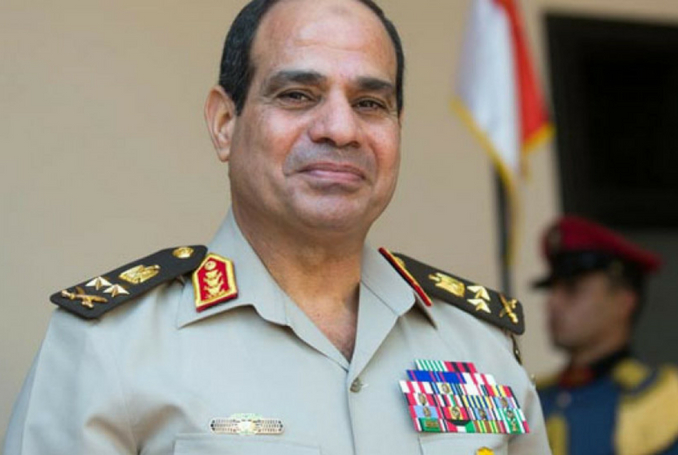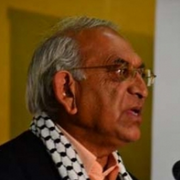
By Iqbal Jassat
Isn’t it bizarre if not downright scandalous for the African continent which since the defeat of apartheid and its replacement with a democratic order in South Africa, had disavowed military coups, yet is led by a coup mastermind?
General Abdel Fatah al Sisi, who toppled Egypt’s only democratically elected leader via a bloody military coup, is not only the strong-armed dictator of the country’s police state but ironically the head of the continent’s premier institution, the African Union.
To the chagrin of the continent’s population, civil society and an array of human rights organizations, Africa’s leader who also is its chief representative at international forums, is an army general who conspired with opponents of the Arab spring, to rob Egypt of the fruits of its revolution.
The popular uprising and mass rebellion saw the removal of Hosni Mubarak, a dictator who ruled Egypt with an iron fist for more than three decades. His departure signaled a breath of fresh air as preparations began in earnest to have Egypt join the global community of free nations.
Banned individuals and groups embraced dramatic changes for they ushered a wave of jubilation as freedom from oppression had finally arrived following decades of struggle, imprisonment, torture, bannings, and executions.
Egypt’s Islamic history and ideological leanings meant that its premier socio-political movement known as Ikhwan al Muslimin or the Muslim Brotherhood, which suffered bannings and executions since its founding almost a century ago, would be a popular choice for the electorate.
That the Ikhwan possessed widespread support amongst the population, from the downtrodden to academics, from youth to housewives and from student activists to religious figures, resulted in it gaining power. Not surprising at all, for the organizational capacity of its leaders to keep the movement alive during the era of severe repression, ensured its dominance.
Unfortunately for Egypt, the dawn of new found freedom and the promise of a democratic future was short lived. A hugely popular revolution which ushered in free and fair elections and which saw the inauguration of the country’s first and only democratically elected president after decades of the tyrannical rule was scuttled.
The military coup, crafted, engineered and funded by Gen Sisi’s backers in the White House, Tel Aviv, Dubai, and Riyadh, plunged Egypt back into the era of dictatorship. Dungeons of torture from which the Revolution had liberated thousands of political prisoners have yet again begun overflowing with detainees without recourse to fair trials.
Egypt as a police state headed by coup-leader Sisi may have camouflaged itself as a “democracy” following stage-managed “elections”, but the reality is that fundamental human rights, including an independent judiciary, media freedom and a host of civil liberties do not exist.
That the elected leader, President Mohamed Morsi died in detention, following his six-year-long incarceration when his government was toppled, is proof enough of the erosion of human rights.
It is a blight on the conscience of the international community for failing to intervene and for remaining tight-lipped about the horrors visited upon Morsi and thousands more. Inhumane solitary confinement, no access to legal aid, denial of medical requirements, are but some of the terrible conditions faced by Sisi’s prisoners.
Equally, it is shameful that major powers who have backed Sisi, have done so on the back of alarmist claims against what is perceived as threats posed by “political Islam”. This narrative has been pushed by the UAE and Saudi Arabia, which viewed the Arab spring as a dangerous political movement allowing “political Islam” to unseat them from the monarchic rule.
In the span of a few years, 2011 to 2013, Egypt underwent revolutionary change sparked by the Arab Spring, democratic elections which brought Morsi to power and ended in the morass in which it finds itself due to the military coup.
Shocking therefore that despite the African Union’s Charter on Democracy, Elections, and Governance, expressly prohibiting coups, Egypt’s membership of it hasn’t been barred.
Though Article 23 specifically calls for punitive action, Gen Sisi has instead been elected to head the AU. This cannot be countenanced as a comedy of errors, precisely because the oppression faced by civil rights activists is no laughing matter.
Member states including South Africa, who are signatories of the AU Charter, need to explain why is it that illegal means of accessing power which resulted in an unconstitutional change of government has not drawn appropriate sanctions?
The AU’s predecessor the Organization of African Unity (OAU) had been emphatic in advocating for popular participation in government by citizens. To clarify this the OAU passed the Lome Declaration, which underlined the continent’s respect for constitutional governance, the rule of law and human rights.
The AU’s Constitutive Act takes the Lome Declaration much further by stressing emphatically that all unconstitutional changes must be condemned and rejected.
Yet in the case of Egypt, despite a temporary suspension, its membership was reinstated, which begs the question whether any “deal” was struck and why?
For as long as Sisi remains at the helm of the AU, the continent’s population will be justified to question its commitment to human rights and the rule of law.
– Iqbal Jassat is an Executive Member of the South Africa-based Media Review Network. He contributed this article to The Palestine Chronicle. Visit: www.mediareviewnet.com

– Iqbal Jassat is an Executive Member of the South Africa-based Media Review Network. He contributed this article to The Palestine Chronicle. Visit: www.mediareviewnet.com







